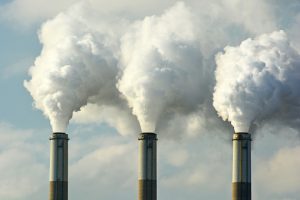 There are a lot of hazards we need to look out for—from cars moving at breakneck speeds to open manholes. However, a greater danger that often goes unrecognized—leaving us unknowingly exposed—is air pollution. Air pollution poses significant health risks and steps need to be taken in order to protect yourself, environmental health experts say.
There are a lot of hazards we need to look out for—from cars moving at breakneck speeds to open manholes. However, a greater danger that often goes unrecognized—leaving us unknowingly exposed—is air pollution. Air pollution poses significant health risks and steps need to be taken in order to protect yourself, environmental health experts say.
According to the department of environmental protection, air pollution can be harmful to our health in high concentrations. Factors like urban smog, particle pollution, and toxic pollutants can eventually manifest into serious health concerns. With enough exposure to pollution, individuals may experience:
- Irritation of the eyes, nose, and throat
- Wheezing, coughing, chest tightness, and breathing difficulties
- Worsening of existing lung or heart problems, such as asthma
- Increased risk of heart attack
Advertisement
Long term exposure may be even more detrimental to our health—over time, damage to the immune, neurological, reproductive, and respiratory systems can leave individuals with chronic debilitating conditions. Cancer development is also a risk of long-term air pollution exposure.
Recent studies have linked air pollution to health problems such as childhood asthma, pregnancy, birth complications, and heart disease. It is estimated that 1.7 million child deaths are due to pollution. Air pollution can result in a variety of environmental effects, including:
- Acid rain: Contains harmful amounts of nitric and sulfuric acids, which can be carried by the wind, sometimes hundreds of miles. Acid rain causes soil and water bodies to acidify, making the water unsuitable for some fish and wildlife.
- Haze: Caused when sunlight encounters tiny pollution particles in the air. It may obscure the clarity, color, texture, and form of what we observe. Some haze-causing pollutants are directly emitted into the atmosphere.
- Global climate change: There is a natural ozone layer around the earth’s atmosphere that contains gasses that trap some of the sun’s heat—it aids in keeping the earth’s temperature stable. The effect is termed the “greenhouse effect.” Unfortunately, with the emission of air pollution, the number of greenhouse gasses is increasing, slowly increasing the temperature of the planet.
- Pay attention to wind patterns: Close the windows of your home to avoid pollutants entering. This is especially important if you live near roads or highways, where vehicles pass by frequently.
- Ozone pollution during the summer: This comes in the form of pollution expelled by cars, buses, and factories that react with sunlight. It tends to peak in early afternoon, so it is advised to avoid vigorous exercise outside during this time in the summer months.
- Use a HEPA filter: Cleaning the air in your home using a high-efficiency air purifier will reduce the particle levels in your home, even in high air-polluted areas.
Related: Blood pressure rises alongside air pollution
